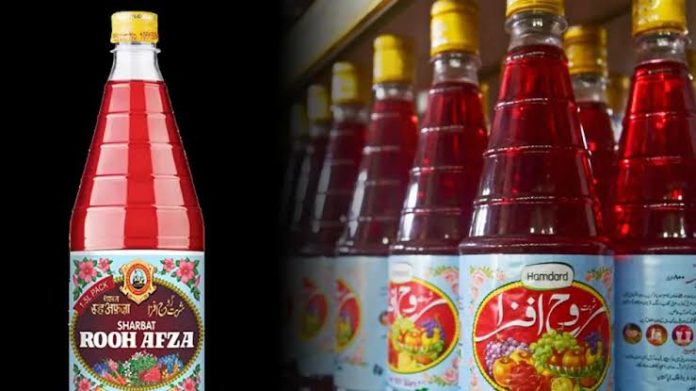Rooh Afza, hailed as the “Soul Refresher,” stands as a testament to the ingenuity and heritage of Old Delhi, India, where it originated in 1906. Crafted by the visionary herbalist Hakim Hafiz Abdul Majeed, Rooh Afza was a response to the sweltering summer heat that enveloped the region. Drawing from the rich tapestry of traditional Unani medicine, Hakim Majeed meticulously curated a blend of herbs and syrups to create a beverage that not only quenched thirst but also provided relief from dehydration and heat strokes.
At the heart of Rooh Afza’s formulation lies the essence of rose petals, a cooling agent steeped in the traditions of Northern India, Pakistan, and Bangladesh. This infusion not only added a fragrant aroma but also enhanced the drink’s ability to combat the scorching summer winds. As Rooh Afza gained popularity, its formulation evolved, incorporating new ingredients while staying true to its roots.
The visual appeal of Rooh Afza was enhanced by Mirza Noor Ahmad, an artist who designed vibrant labels for the bottles around 1910, further solidifying its identity as a refreshing and iconic beverage. Despite Hakim Majeed’s passing, his legacy endured through his wife, Rabea Begum, who established a charitable trust in their family’s name, ensuring that the spirit of Rooh Afza would live on.
The partition of India in 1947 did not diminish Rooh Afza’s legacy. Hakim Majeed’s younger son, Hakim Mohammad Said, migrated to Pakistan and founded a separate Hamdard Company in Karachi, continuing the production of Rooh Afza in the new nation. Today, Rooh Afza is manufactured by companies founded by Hakim Majeed and his sons in India, Pakistan, and Bangladesh, transcending borders and cultures to refresh people for over a century.
Rooh Afza’s journey from the streets of Old Delhi to becoming a beloved household name across the Indian subcontinent is a testament to the power of innovation, tradition, and perseverance. Its ability to adapt while staying true to its heritage speaks volumes about its enduring appeal, making it more than just a beverage but a cultural icon cherished by generations.


